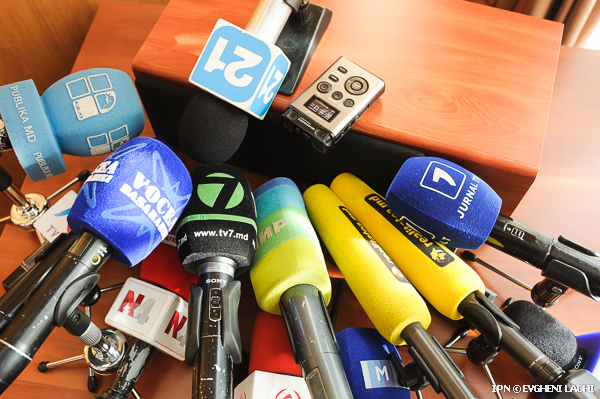
Last year was a regression year for the Moldovan mass media owing to the political instability in the country. The politicians continued to become involved in the activity of the media and a part of the private media outlets often behaved like a ‘speaking trumpet’ of parties and employers. Such conclusions are contained in a report on the situation of the media in Moldova in 2015, which was compiled by the Independent Journalism Center, IPN reports.
According to the report, grand corruption represented the main subject addressed by the mass media. In this regard, the investigation carried out by Kroll, which revealed the ‘theft of the century’, and the large-scale protests caused by the political crisis attracted the attention not only of the Moldovan journalists, but also of those from abroad. The main accomplishment in the area of legislative developments was the adoption of the updated Broadcasting Code, which took effect on November 1, 2015. The law confirmed the concentration of the mass media and evident monopolization trends on the media market.
The main failure is related to the transition from analog terrestrial television to digital terrestrial one. The process was to be completed in June 2015, in accordance with the Geneva Agreement that was signed by Moldova 2006. Owing to the delay, on July 31 Parliament adopted a law by which it extended the deadline to December 31, 2017.
A separate chapter is devoted to the situation of the mass media in the Transnistrian region, where there are 202 journalists. Experts from the region consider the representatives of the Transnistrian mass media do not have many alternatives. They either work for the official media outlets or for those owned by the concern “Sheriff”. The journalists there are limited in their rights, the arrest of journalist and activist Sergey Ilchenko being a proof in this regard.
The Independent Journalism Center said the forecasts for 2016 aren’t very optimistic. The situation in the field will not change radically compared with 2015. The propaganda and manipulation will remain the biggest challenges for the media organizations and civil society will have to identify new methods for neutralizing the negative impact of these phenomena on the people’s mentality.












